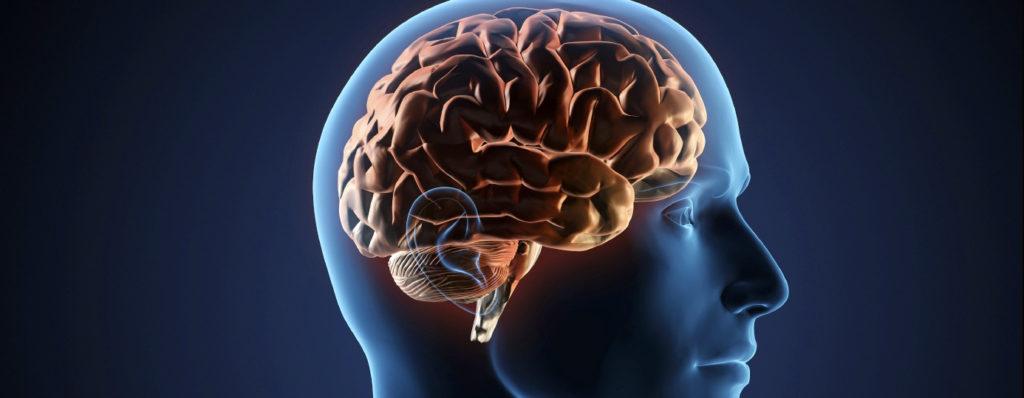Overview
Major or Mild Neurocognitive Disorder Due to HIV Infection is a neuropsychological disorder characterised by neurocognitive impairments. These impairments may not have a particular age of onset and vary vividly among patients. However, one third of infected individuals may develop mild neurocognitive dysfunction.
Neurocognitive degeneration can be seen when the person has difficulties in attention span, exhibits executive dysfunction, learning and memory, social cognition, etc.
Due to HIV infection, especially immunosuppression at a severe level, viral load at the CSF level is quite high, causing deficiencies such as leukoencephalopathy and the subcortical regions of the brain.
Hence, impairments are seen in cognitive abilities. Majorly, information processing speed, problems with more demanding attentional tasks, difficulty learning new information, etc.
Mostly, deficits are milder in nature but in case of serious infections that cause brain damage the neurocognitive impairments may be major in nature.
In Major or Mild Neurocognitive Disorder Due to HIV Infection, the deficits can be major or mild. This distinction is based on the impairment and the level of assistance required for the person to carry out day to day activities.
Major deficits mean greater impairment and assistance with most basic day to day activities while mild deficits mean lesser assistance and the person can carry out basic day to day activities.
HIV is a complex virus that affects the immune system. Although via modern medicine the effects of HIV and transmission rates have gone down. This only remains true in developed countries where treatment is readily available.
In developing nations, treatment isn’t readily available causing more complex forms of disease, especially AIDS. When the person gets AIDS, the immune system is compromised. Most of the body’s efficiency and energy goes towards fighting off various life threatening diseases compromising the function of the nervous system and causing neurocognitive deficits overtime.
Opportunistic infections and diseases such as cryptococcal and tubercular meningitis, toxoplasma encephalitis, and progressive multifocal leukoencephalopathy may directly affect the functions of the nervous system and cause neurocognitive deficits are also common.
HIV-related neurological implications are often seen in the subcortical regions in the brain, reduced white matter volume. However, the pattern of onset may vary due to age related factors, CSF viral loads, therapy that is being received, and other comorbidities and secondary infections.
Despite treatment, patients with HIV generally perform lower on tasks that measure neurocognitive function. This phenomenon is being vigorously explored by researchers in the field.
The neurocognitive deficits caused due to HIV can be mild or major. Major Neurocognitive deficit is known as AIDS Dementia Complex which is caused due to severe degradation of the subcortical regions of the brain. Mild Neurocognitive deficits are known as HIV- associated Neurocognitive Deficits which consist of milder forms of neurodegeneration.
Common Signs and Symptoms
Common signs and symptoms include:
- Cognitive deficits such as trouble completing complex tasks, problems with memory, difficulty sustaining attention, executive dysfunction, recall and learning is affected.
- Language may be impaired, aphasia, difficulty speaking is also common.
- Difficulty maintaining balance while walking or standing.
- Changes in vision.
- Difficulty swallowing.
- In major cases, AIDS Dementia Complex may also be a consequence of subcortical brain damage. It is characterised by extreme difficulty in attention and memory, mood disturbances, motor dysfunction or slowing of movements, etc is common.
- Mood disturbances such as feelings of apathy, irritability and anxiety are common.
Risk Factors
One-third of HIV infected individuals suffer from Mild or Major Neurocognitive Disorder. The onset of this disorder may be early for people coming from developing nations where treatment isn’t readily available. In patients who receive adequate treatment, neurocognitive deficits are present but with much later onset and mostly in milder forms.
Secondary infections that affect the nervous system directly may increase the risk of getting this disorder.
Risk Factors for HIV are also applicable to this disorder. These include unprotected sex with an infected individual, sharing needles during intake of drugs, direct or indirect blood transfusion, etc.
It can also be passed down from the parents to the child. In children born with HIV, neurodevelopmental deficits are commonly seen.
Diagnosis
The diagnosis of Mild and Major Neurocognitive Disorder due to HIV Infection is given by a neuropsychologist, neurologist or a neuropsychiatric.
The person may be asked to perform various cognitive tasks and ability might be measured using various neuropsychological tests of cognitive function. Motor functions are also assessed before diagnosis.
Other biological markers may be considered before the diagnosis. Functional MRIs and PET scans are used to assess neurological damage. CSF viral loads may be tested to check the level of impairment.
DSM-5 notes the following criteria to be diagnosed with Mild or Major Neurocognitive Disorder due to HIV Infection:
- Neurocognitive deficits of mild or major severity as assessed by a clinician and supported with necessary biomarkers.
- The patient must have a documented history of HIV.
The professional giving the diagnosis has to rule out other conditions such as substance abuse, age related factors, other neurocognitive diseases and other secondary infections that may cause impairment of this level.
Treatment
Earlier, HIV was considered to be a fatal disease. However, with increasing treatment options, the life expectancy and infection related complications have gone down.
Most prominent form of treatment for HIV includes combination Antiretroviral Therapy(cART). This form of therapy uses 2-3 different drugs that stop HIV from forming more copies in the body, stopping the immunosuppression and increasing the immune system stability.
CART is seen to help reduce occurrences of AIDS Dementia Complex by half. However, it still poses a challenge to patients suffering from HAND. Most of the patients of HIV score lesser on neurocognitive tests as compared to normal populations.
Several other treatment methods which are still under trial include the administration of Serotonin Reuptake Inhibitors, minocycline, valproic acid, fluconazole, etc. These, however, show some results do warrant further investigation.
Differential Diagnosis
Among older adults, onset of neurocognitive decline related to cerebrovascular disease or neurodegeneration (e.g., major or mild NCD due to Alzheimer’s disease) may need to be differentiated.
Because more severe immunodeficiency can result in infections of the brain and neoplasia; sudden onset of an NCD or sudden worsening of that disorder demands an investigation of non-HIV causes.
Comorbidity
HIV disease is accompanied by chronic systemic and neuro-inflammation that can be associated with cerebrovascular disease and metabolic syndrome.
These complications can be part of major or mild NCD due to HIV infection. HIV frequently cooccurs with conditions such as substance use disorders (injected) and other sexually transmitted disorders.
Specialist
A neurologist, neuropsychologist or neuropsychiatrist are often referred to for treatment.





